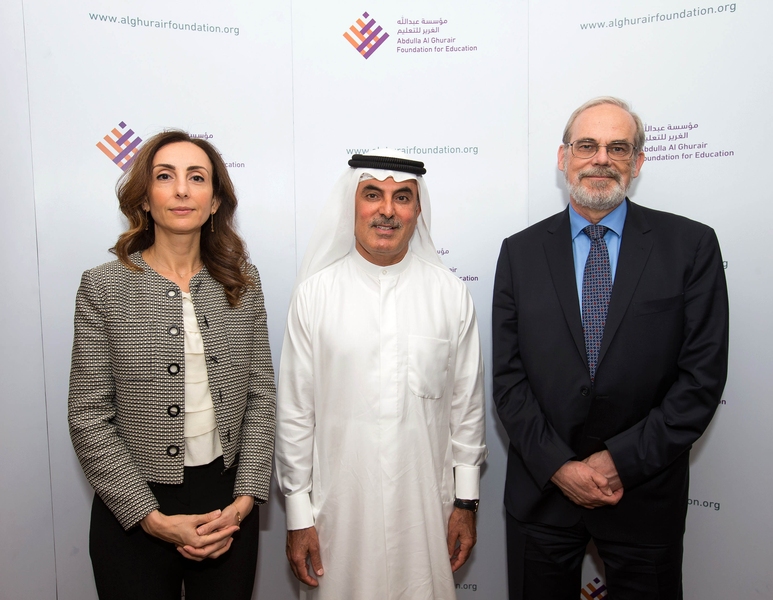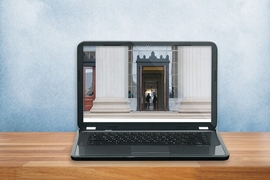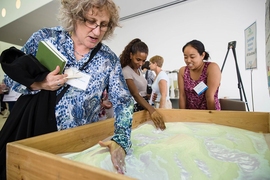MIT, through its Office of Digital Learning (ODL) and the Abdulla Al Ghurair Foundation for Education, today announced a new collaboration aimed at expanding access to and use of digital learning environments in the areas of science, technology, engineering, and math (STEM) for learners worldwide.
Specifically, this collaboration brings together the Al Ghurair Open Learning Scholars Program, a new effort that will make some of the best STEM education in the world available to Arab youth through innovative online and blended learning accredited degree programs and recognized credentials, and the new MITx MicroMaster's academic credential delivered through MIT's Office of Digital Learning and MITx. It is designed to fill a need for flexible professional credentials that can be gained online by those with the ambition and self-discipline to succeed.
Abdul Aziz Al Ghurair, chairman of the board of trustees, said, “The program will not only allow learners in the Arab world to upgrade their skills while living in the region, but it will also improve their job prospects in a rapidly changing and globally competitive marketplace.”
MITx launched the MicroMaster's in October of 2015 with a first offering of a credential in supply chain management. This collaboration will expand the range of offerings. Participants in a MicroMaster's program must complete five individual online courses to earn an MITx credential. Students can then apply to complete a master’s at MIT or another university, or more competitively seek employment opportunities in companies across the region and the world.
"With this program, the foundation wants to remove the barriers that most Arab students face in accessing high-quality higher education," said Maysa Jalbout, CEO of the Abdulla Al Ghurair Foundation for Education. "We believe that the Arab region must embrace new technology-based models of education or risk falling further behind the rest of the world.”
The collaboration with the Abdulla Al Ghurair Foundation for Education will fund the development of two new MicroMaster's. The first will be in the area of data science and management and will be directed toward training statistics-enabled professionals to better understand the ever-increasing complexity of today's global challenges. The focus of the second MicroMaster's will be determined jointly and will have a strong foundation and emphasis on science, technology, engineering, mathematics, and systems.
"The new MicroMaster’s is an innovative and important next step in MIT’s engagement with learners worldwide," said Sanjay Sarma, vice president for open learning at MIT. "Through modular offerings and credentials for the digital age, as well as through blending online and on-site pathways, it offers new opportunities for lifelong learning."
The Abdulla Al Ghurair Foundation for Education is one of the largest privately funded philanthropic education initiatives in the world and is focused on providing access to high-quality education for high-achieving, underserved Arab youth who excel in the fields of science and technology and are committed to giving back to their community and the Arab world.
The mission of MIT’s Office of Digital Learning is to transform teaching and learning at MIT and around the globe through the innovative use of digital technologies.










